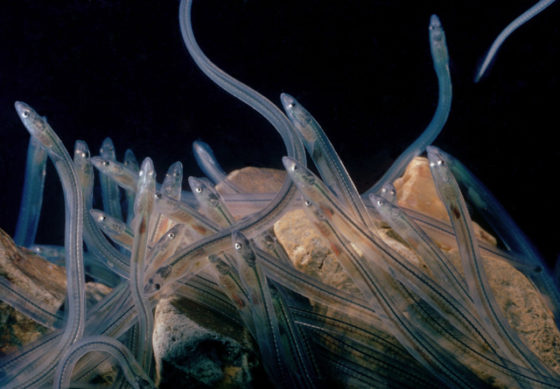
Since 2018, the GFCM has been on the forefront of European eel management and conservation, taking steps going further than those adopted by the European Union, but today we must express some disappointment with the long-term measures adopted this week, considering the status of the population and the zero catch advice.
While we welcome the long-term management framework and the continuation of most of the current measures agreed last year, including a total ban on recreational fishing and six-month commercial eel fishing closures to protect eel migration, to be implemented in all waters, there are no clear targets established for eel recovery.
This is against the backdrop of scientific advice released by the International Council for the Exploration of the Sea (ICES) on 1 November 2024 showing that recruitment is down to 7.2% and that stock size is estimated to be well below any potential biological limit reference points, emphasising the need for stronger measures and zero catch.
In preparation for the long-term management measures, the General Fisheries Commission for the Mediterranean (GFCM) Research Programme on European eel provided a range of well-considered recommendations on management measures for this critically endangered species in a “tool box”, which were assessed for their likely effectiveness as well as for socio-economic trade-offs. Even with this impressive work, later endorsed by the GFCM Scientific Advisory Committee on Fisheries (SAC), the agreed long-term measures do not include any targets for rebuilding the eel population, and there is no obligation to align the fishing closures with migratory patterns.
A majority of the contracting parties have also been calling for a ban on glass eel fishing and this has not been implemented. At its twenty-fifth session, the SAC supported a step-by-step approach to further protect eel recruitment and the proposed long-term measures do include a range of new provisions for glass eel. While limitations allowing only artisanal fisheries with passive gears and further requirements for traceability have been included in the long-term measures, the gradual reduction in fishing mortality agreed last year has been replaced by a shorter fishing period and freezing the number of fishing gears. Glass eel fishing in the Mediterranean is really limited to only two regions in Spain: Catalonia and Valencia.
– The effectiveness of shortening the fishing period is difficult to assess as glass eel fisheries tend to be very seasonal, but we believe more could have been done here to protect recruitment and secure a future for this species, says Niki Sporrong, Senior Policy Officer & European Eel Project Manager at FishSec.
The possibility to establish closed areas, including in freshwaters and transitional waters, remains in the long-term measures and hopefully contracting parties will make further use of this possibility to protect European eel.
Finally, close monitoring of the effectiveness of the management measures is of outmost importance. It is therefore disappointing that the Expert Group on eel is now expected to meet next in 2029 when the long-term measures expire, as this will not provide sufficient opportunities to review progress on implementation or adjust measures that may be ineffective.
– It is our belief that with the long-term measures agreed here the GFCM will be making some progress, but they do not fully reflect scientific advice and are unlikely to secure eel recovery. We regret that this is the case, says Domitilla Senni, Director at MedReAct.
If there is no measurable recovery in the next 5 years, emergency measures should be considered, including a moratorium of eel catches for all life stages for at least 3 years, as proposed by the GFCM eel research programme.
241104 Joint FishSec MedReAct statement on proposed GFCM long-term measures for eel